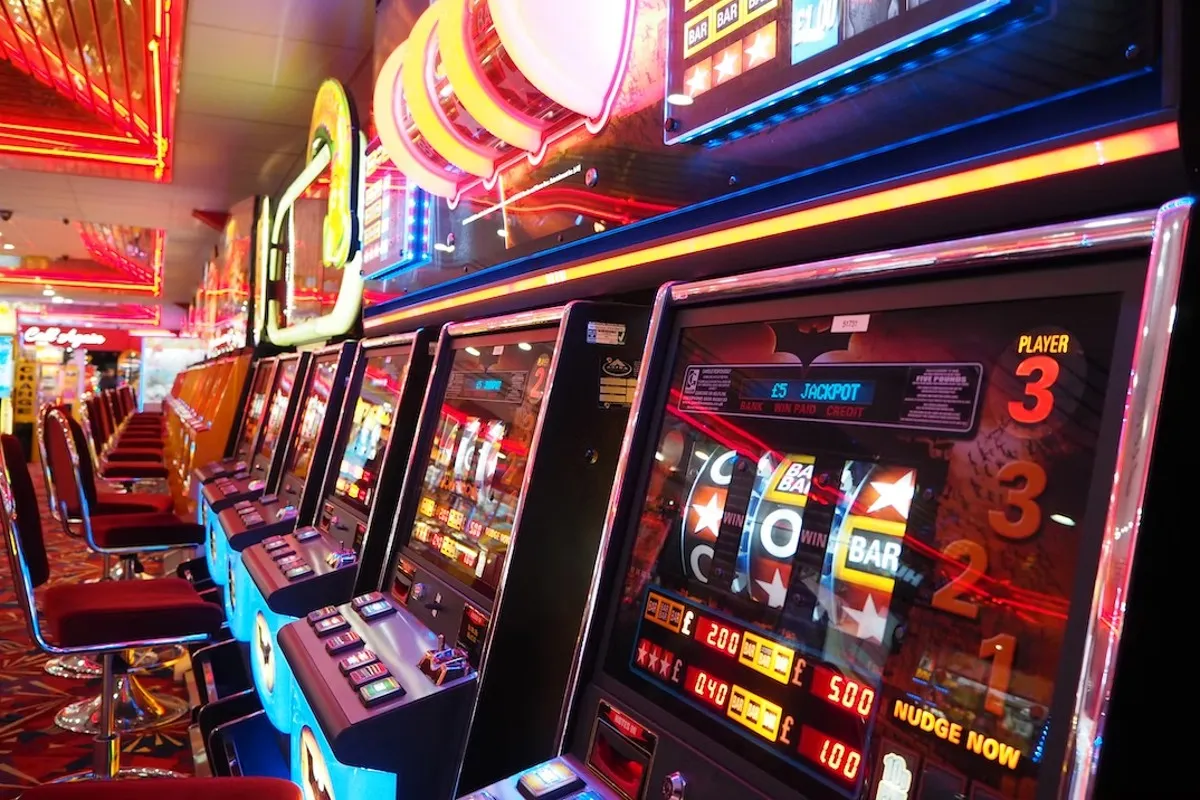
Slot machines have been a staple in casinos for decades, drawing players with the thrill of spinning reels and the hope of hitting that big win. But there’s more to the allure of slots than just luck. One of the most powerful psychological tricks used by slot machines is the “near-miss” effect, a phenomenon that keeps players engaged even when they’re losing. This article delves into how near-misses play with the human mind, making games like those at vavada kasiino hard to resist.
Understanding Near-Misses in Slot Games
A near-miss in slot machines occurs when the symbols on the reels almost align in a winning combination but fall just short. For example, imagine spinning the reels and landing two jackpot symbols in a row, only to see the third one stop just one position away from completing the win. You didn’t actually win anything, but it feels like you were so close.
This sensation is no accident. Slot machine designers have long understood the psychological power of near-misses. These almost-wins create a sense of anticipation and can be even more motivating than an actual win. The near-miss effect taps into the brain’s reward system, triggering a response that makes players feel they’re on the verge of winning, encouraging them to keep playing.
Why Near-Misses Are So Effective
The near-miss effect is rooted in the way our brains are wired. Research shows that near-misses activate the same areas of the brain associated with actual wins, particularly the regions linked to motivation and reward. The brain interprets these near-wins as signs of progress, leading players to believe that they’re getting closer to hitting the jackpot. In reality, each spin is independent, and the odds remain the same, but our brains are easily tricked into thinking that persistence will eventually pay off.
This phenomenon is not unique to slot machines. It can be observed in other areas, such as sports or video games, where coming close to a goal creates a strong desire to keep trying. However, in slot machines, near-misses are carefully engineered to occur at just the right frequency. Game designers strategically program the reels to deliver near-misses more often than would occur naturally, knowing that this keeps players hooked.
The Role of Dopamine in Keeping Players Engaged
Dopamine, often referred to as the brain’s “feel-good” neurotransmitter, plays a key role in how near-misses affect behavior. When you play a slot machine, your brain releases dopamine each time you anticipate a win. Even when you don’t win, the near-miss triggers a similar dopamine release, reinforcing the desire to keep playing. This chemical response can create a cycle where players chase that dopamine high, leading to extended playing sessions and, in some cases, problem gambling.
Slot machines, including those at online platforms like vavada kasiino, are designed with this understanding of human psychology in mind. The flashing lights, catchy sounds, and animations that accompany near-misses all contribute to creating a stimulating environment that keeps the brain craving more. Over time, the combination of near-misses and dopamine rewards can lead to the “just one more spin” mindset that’s so common among players.
Breaking Free from the Near-Miss Trap
Recognizing the impact of near-misses is the first step toward responsible gaming. While these almost-wins can create a strong urge to keep playing, it’s important to remember that they are carefully crafted to encourage this behavior. Every spin is independent, and the outcome is purely based on chance, regardless of how close you come to a win.
Setting limits on time and spending, taking regular breaks, and focusing on the entertainment value of the game rather than chasing a win are all ways to enjoy slot machines without falling into the near-miss trap. By understanding the psychological mechanisms at play, players can make more informed decisions and avoid the pitfalls that come with chasing that elusive win.
Final Thoughts on the Psychology Behind Slot Machines
The near-miss effect is a powerful tool in the world of slot machines, shaping player behavior in subtle yet effective ways. By manipulating the brain’s reward system, near-misses create an illusion of progress that keeps players coming back for more. Whether you’re playing at a land-based casino or enjoying games online at vavada kasiino, being aware of how near-misses work can help you stay in control and enjoy the game for what it is—entertainment, not a guaranteed path to winning.
Understanding the psychology behind these games not only makes you a more informed player but also empowers you to game responsibly, ensuring that the experience remains fun rather than frustrating.
